 | TODAY IN SCIENCE HISTORY NEWSLETTER - 28 APRIL |
| Feature for Today |
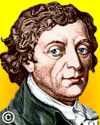 On 28 Apr 1753, Franz Karl Achard was born, the German chemist and experimental physicist who invented a process for the large-scale extraction of table sugar (sucrose) from beets, and in 1801, opened the first sugar-beet factory, in Silesia (now Poland). On 28 Apr 1753, Franz Karl Achard was born, the German chemist and experimental physicist who invented a process for the large-scale extraction of table sugar (sucrose) from beets, and in 1801, opened the first sugar-beet factory, in Silesia (now Poland).The beet may have been known to the builders of the pyramids, but it was the English blockade of French ports that spurred Napoleon to seek an alternate source of sugar without relying on imported supplies. No sugar! Sacre bleu! Napoleon was fully cognizant of what a privation this was to his people. On 25 Mar 1811, he issued a decree that set in motion the beet industry of the world. Now you may appreciate why Achard's invention was so significant! For more background, read this history of Beet Sugar in Europe from Something About Sugar: Its History, Growth, Manufacture and Distributions (1917). |
| Book of the Day | |
| |
| Quotations for Today | |
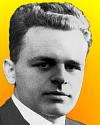 | "For many years I have been a night watchman of the Milky Way galaxy." |
| "I gleaned more practical psychology and psychiatry from the Bible, than from all other books!" | |
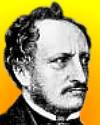 | "Observation is simple, indefatigable, industrious, upright, without any preconceived opinion. Experiment is artificial, impatient, busy, digressive; passionate, unreliable. We see every day one experiment after another, the second outweighing the impression gained from the first, both, often enough, carried out by men who are neither much distinguished for their spirit, nor for carrying with them the truth of personality and self denial. Nothing is easier than to make a series of so-called interesting experiments. Nature can only in some way be forced, and in her distress, she will give her suffering answer. Nothing is more difficult than to explain it, nothing is more difficult than a vall'd physiological experiment. We consider as the first task of current physiology to point at it and comprehend it." |
| QUIZ | |
| Before you look at today's web page, see if you can answer some of these questions about the events that happened on this day. Some of the names are very familiar. Others will likely stump you. Tickle your curiosity with these questions, then check your answers on today's web page. | |
| Births | |
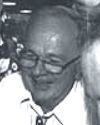 |  An American planetary geologist, born 28 Apr 1928, codiscovered (with Levy) a comet which collided with Jupiter (1994), the first observed collision of two solar system bodies. An American planetary geologist, born 28 Apr 1928, codiscovered (with Levy) a comet which collided with Jupiter (1994), the first observed collision of two solar system bodies. Can you name this scientist? Can you name this scientist? |
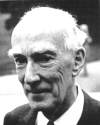 |  Jan Hendrik Oort, born 28 Apr 1900, was a physicist and astronomer who was one of the most important figures in 20th-century efforts to understand the nature of the Milky Way Galaxy. In 1950 Oort proposed the now generally accepted model for the origin of comets from the "Oort Cloud." Jan Hendrik Oort, born 28 Apr 1900, was a physicist and astronomer who was one of the most important figures in 20th-century efforts to understand the nature of the Milky Way Galaxy. In 1950 Oort proposed the now generally accepted model for the origin of comets from the "Oort Cloud."  What nationality was Oort? What nationality was Oort? |
| Deaths | |
| |  Edouard van Beneden (1846-1910) was a Belgian embryologist and cytologist best known for his discoveries concerning fertilization in sex cells and chromosome numbers in body cells. Edouard van Beneden (1846-1910) was a Belgian embryologist and cytologist best known for his discoveries concerning fertilization in sex cells and chromosome numbers in body cells. What was discovery concerning the number of chromosomes in body cells with different functions of a single species? What was discovery concerning the number of chromosomes in body cells with different functions of a single species? |
| Events | |
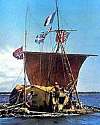 |  On 28 Apr 1962, a balsa raft, and a crew of six left Peru, bound for Polynesia, which was reached 101 days later. The captain was anthropologist Thor Heyerdahl., who wished to demonstrate that the ancient Polynesians could in the same way have originated from South America. On 28 Apr 1962, a balsa raft, and a crew of six left Peru, bound for Polynesia, which was reached 101 days later. The captain was anthropologist Thor Heyerdahl., who wished to demonstrate that the ancient Polynesians could in the same way have originated from South America. What was the name of his famous craft? What was the name of his famous craft? |
 |  On 28 Apr 1926, the term "wave mechanics" was coined by nuclear physicist in a letter he sent to Einstein. The term was applied to the newly emerging branch of physics which interprets the behaviour of subatomic particles according to a mathematical description in terms of a wave motion. On 28 Apr 1926, the term "wave mechanics" was coined by nuclear physicist in a letter he sent to Einstein. The term was applied to the newly emerging branch of physics which interprets the behaviour of subatomic particles according to a mathematical description in terms of a wave motion.  Which physicist coined the name "wave mechanics"? Which physicist coined the name "wave mechanics"? |
| Answers |
When you have your answers ready to all the questions above, you'll find all the information to check them, and more, on the April 28 web page of Today in Science History. Or, try this link first for just the brief answers. Fast answers for the previous newsletter for April 27: nylon; Samuel (Morse); Arbor day; named for the German physicist Otto Hahn; the decade including the year 1880. |
| Feedback |
 If you enjoy this newsletter, the website, or wish to offer encouragement or ideas, please send feedback by using your mail reader Reply button. If you enjoy this newsletter, the website, or wish to offer encouragement or ideas, please send feedback by using your mail reader Reply button. |
--
If you do not want to receive any more newsletters, this link
To update your preferences and to unsubscribe visit this link
If you do not want to receive any more newsletters, this link
To update your preferences and to unsubscribe visit this link
! !



Δεν υπάρχουν σχόλια:
Δημοσίευση σχολίου